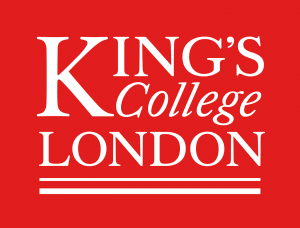Ever since I was a medical student, I have been passionate about making a difference and admired the faculty members who were researchers and teachers in my medical school. As a child, I wanted to become a doctor in order to make the world a better place, through healing the sick and helping the needy. Lofty ideals indeed! As I have grown up and matured as a doctor and, in parallel, as an academic, I have come to realise that my passion lies in improving the health and wellbeing of children and young people in the community.
Being a doctor is a privilege because one has the honour of helping others in their times of sickness and need but being an academic doctor, with a focus on improving health at a population level, is beyond a privilege. I started as a junior in English hospitals, working long hours and juggling seriously ill patients in challenging circumstances. However, eventually I came to believe that hospital settings are not the best place to prevent disease and promote health. By the time children and young people are seriously unwell in hospital the chances to promote health and wellbeing, prevent chronic diseases or prevent acute injuries has already been missed. I became disillusioned with the way healthcare was managed and delivered in the hospital and felt powerless to restructure it or advise on how to improve it. I feel that part of the issue was that hospital-based care was still very much modelled on the biomedical model of health, which puts the biological model uppermost. What was lacking for me was the holistic healthcare approach that an education in public health medicine could have given me.
As well as allowing me to undertake further training in statistics and epidemiology, it allowed me to choose modules relating to mental health care and learn more about non-communicable disease epidemiology more widely. I was able to hone my knowledge and understanding of how to present population-based problems in a scientific way and test my thinking with rigour.
Going forward, I am shocked and dismayed at the way in which mental health is still very much a seen as a second best to physical health. As a practising GP I am constantly explaining to my patients that their mental health and physical health are inextricably linked. It is often possible in general practice to investigate physical complaints with investigations but also to commence a conversation about mental health. Currently I work with a large practice that has a relatively young population so I have developed more experience with mental health problems than would have been possible otherwise. My next plan is to undertake research on mental health problems in children and young people in primary care, starting with the earlier recognition of mental health disorders. Currently there are long delays of several years between the onset of symptoms and a diagnosis of mental health disorders. If we can identify mental health disorders earlier, we may reduce the distress, complications, effects on families and consequences for society in the future.
I have always been eager to improve the health of children and young people because this could result in huge benefits for society when they become adults. I also feel that society has a moral responsibility to advocate for better health for children and young people because they are less able to advocate for themselves and play an effective part in the political systems that should be looking after their health and wellbeing. Learning about mental health in the community is an essential first step in allowing practitioners, commissioners and researchers to start thinking about how they can bring better mental health to their communities. It is also essential that the gaps in the provision of excellent mental health care are identified and that the gaps are filled with enthusiastic professionals who develop a desire and eagerness to improve their own health care systems and improve the health of their populations. Much mental health burden remains to be identified, quantified and effective interventions are still lacking. Undertaking a module in mental health in the community is an ideal way to protect some space and time to reflect on the needs of your own populations and how you can address those needs.
In terms of the research landscape, there are very few practising GPs undertaking research at Universities. Of all medical graduates, around half will finish their clinical training to become GPs, with the other half working in other specialities (usually in hospital). However, of all the faculty members working as clinical academics, only 6% are GPs. Of the 6% of GPs who undertake research, only a handful are focused on the mental health of children and young people. The consequence of this is that very little is known about the pathways to diagnosis for mental health disorders. Very little research focuses on the ‘pre-diagnosis’ phase of mental illness or on the earlier detection of mental health disorders in children and young people in the community. My desire is for more professionals (especially GPs) to become aware of and enthusiastic about using their skills in public health to improve the mental health of their communities and make a difference that lasts into the future.
Vibhore Prasad (@ugm5vp) is a practising GP and NIHR Academic Clinical Lecturer in General Practice academic at the School of Population Health & Environmental Sciences at King’s College London. His research focuses upon improving the physical and mental health of children and young people.

Leave a Reply